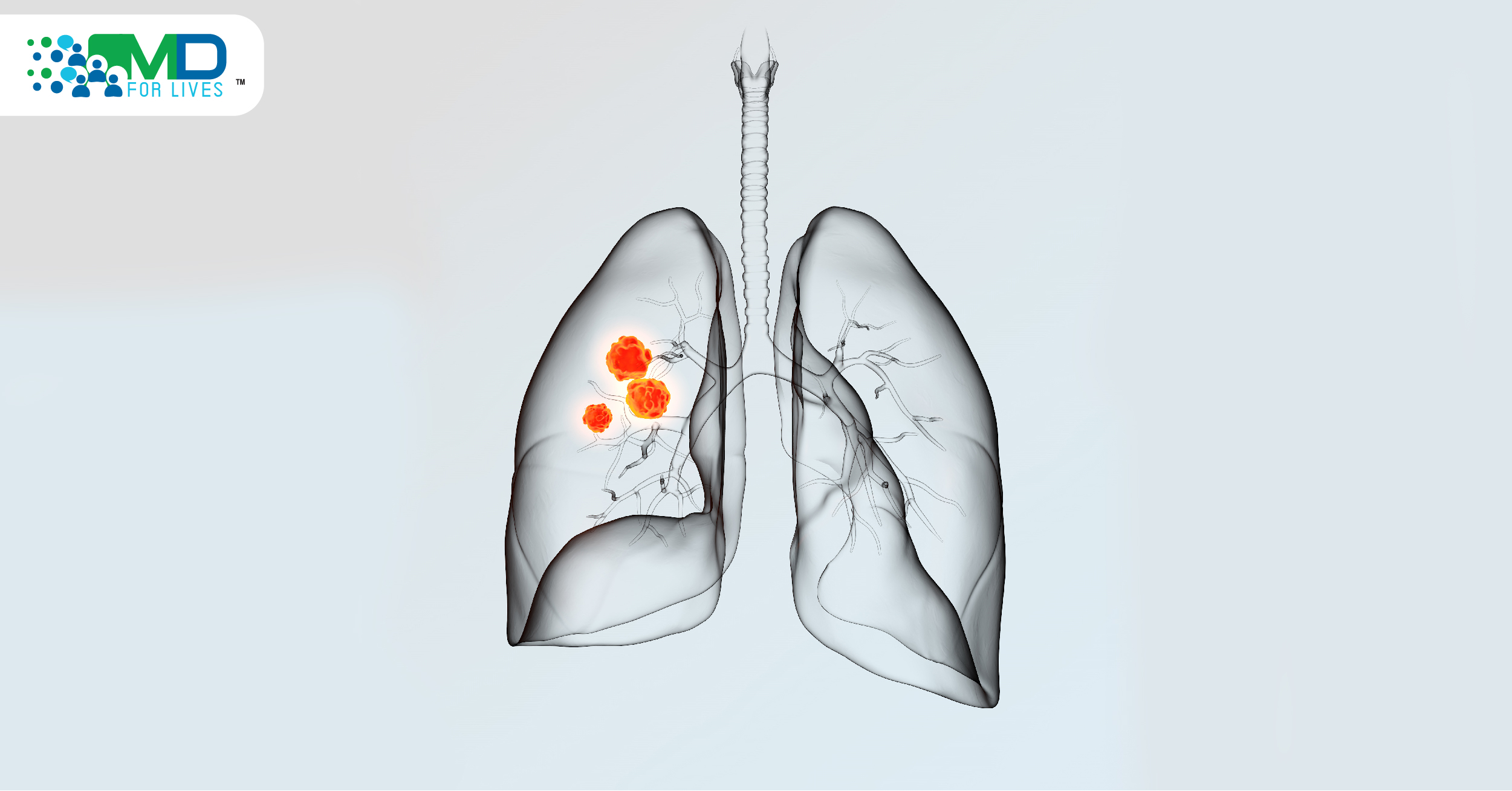Lung cancer is the number one cause of cancer-related death worldwide. Each year, about 2.2 million new cases of lung cancer are diagnosed and non-small cell lung cancer accounts for 84% of all lung cancer diagnoses.
KRAS is the frequent oncogenic driver in solid tumors, including non-small cell lung cancer (NSCLC). Despite decades of research, the efforts to target KRAS were always elusive and considered as ‘undruggable’. Now researchers have finally determined to target KRAS.
Sotorasib (Lumakras™, Amgen, Inc.), a RAS GTPase family inhibitor is the first FDA-approved therapeutics for KRAS-mutant tumors. Sotorasib (AMG 510), the KRAS-blocking drug has received accelerated approval to treat adult patients with previously treated locally advanced or metastatic NSCLC with KRAS G12 mutation. The drug is approved for patients who received at least one prior therapy.
KRAS Oncogene
The KRAS gene (Ki-ras2 Kirsten rat sarcoma viral oncogene homolog) that encodes GTPase transductor protein is one of the most frequently activated oncogene and is associated with poor response to standard therapies. The protein relays external signals to the cell nucleus and acts as a switch to activate several genes involved in cell division. KRAS mutation inhibits the ability of the protein to toggle between active and inactive states and permanently locks the protein in the active state, resulting in uncontrolled cell divisions that lead to cancer. The KRAS mutation is a known driver of lung cancer, pancreatic cancer, and colorectal cancer
Mechanism of Disease for KRAS-G12C Mutated NSCLC
KRAS encodes GTPase that switch between active guanosine triphosphate (GTP)–bound and inactive guanosine diphosphate (GDP)- bound state and regulate signal transduction. KRAS-G12C mutation occurs in approximately 13% of NSCLCs. The single point mutation at codon 12, substitutes glycine with cysteine and favors the active form of KRAS protein by slowing the hydrolysis of GTP-bound state, thereby activating downstream signaling pathways and subsequent tumorigenesis.
KRAS was considered ‘undruggable’ due to the lack of surface targets for binding small molecule drugs. In the inactive state of KRAS-G12C, the mutant cysteine resides next to a surface pocket, the P2 pocket which provides a potential binding target for covalent inhibitors. The covalent inhibitors can specifically bind to cysteine 12 adjacent to the small pocket of KTAS-G12C protein and lock the mutated KRAS-G12C to an inactive form, and inhibit oncogenesis signaling. In non-small-cell lung cancer, the small molecule sotorasib found to interact with the P2 pocket, irreversibly inhibits KRAS-G12C, and shrunk the tumors.
Clinical Trial and FDA Approval
The FDA approval was based on the results of CodeBreak 100, an open-label study of patients with locally advanced or metastatic NSCLC with KRAS-G12C mutations. The study evaluated 124 patients with disease progression after receiving at least one prior systemic therapy- immune checkpoint inhibitor and/or platinum-based chemotherapy.
In the trial, patients received a 960 mg oral dose of sotorasib daily until disease progression or unacceptable toxicity. Efficacy, safety, tolerability, pharmacokinetics, and pharmacodynamics were evaluated. The results showed favorable efficacy and tolerability also the pharmacokinetic and pharmacodynamic modeling supported the approved dose of sotorasib.
The major outcomes measured were objective response rate (ORR) – the proportion of patients in the trial whose tumor is destroyed or significantly reduced by the drug- and duration of response (DoR). The ORR was 36% and the median DoR was 10 months.
As part of the evaluation, a post-marketing trial to evaluate the effect of a lower dose of sotorasib has been required by the agency.
The common side effects were diarrhea, musculoskeletal pain, hepatotoxicity, nausea, fatigue, and cough. The laboratory abnormalities include low lymphocyte count; low hemoglobin; elevated AST; and elevated ALT. Decreased sodium, calcium, and increased alkaline phosphatase, urine protein were also reported. The treatment was discontinued in 9% of the patients due to adverse effects.
Withhold the drug if patients develop symptoms of interstitial lung disease and if interstitial lung disease is confirmed then permanently discontinue the drug. The patient’s liver functions should be monitored before starting the therapy. Require regular monitoring of liver function during the treatment for any signs of liver injury. Withhold the drug, reduce the dosage or permanently discontinue the drug if the patient develops liver damage. Acid-reducing agents should be avoided while taking sotorasib.
The accelerated approval for sotorasib has been granted based on ORR and DoR. For continued approval, confirmatory trial(s) to verify the anticipated clinical benefits of sotorasib is required.
The FDA has also approved two companion diagnostic tests the QIAGEN therascreen® KRAS RGQ PCR kit (tissue) and the Guardant360® CDx (plasma) to test KRAS-G12C status.






